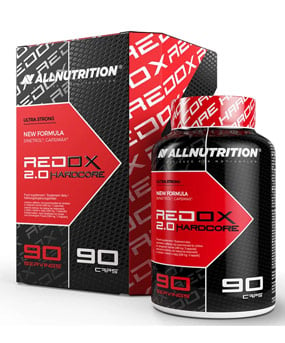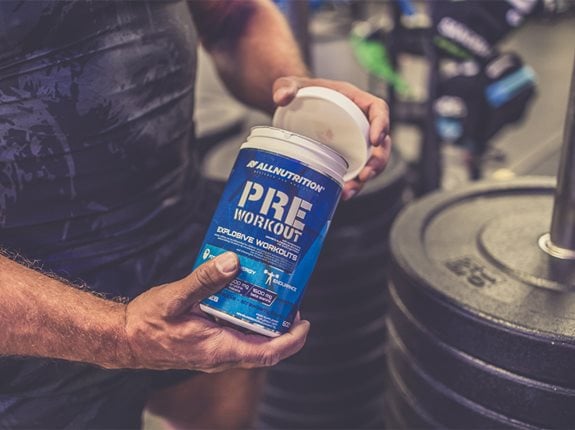Protein supplements have become one of the mainstays of the health/fitness & bodybuilding movement. Once used almost exclusively by bodybuilders, sales of protein shakes and meal replacement powders continue to increase year after year as more and more members of the general public are using them. Within the framework of the fitness world- protein shakes are seen as an invaluable tool in achieving a lean and muscular physique. Without a doubt there are few within the industry that do not use them. I used protein shakes almost everyday for over fifteen years. I no longer use them, as I no longer believe them to be anything more than a waste of good money.
The first and most important argument to be made against the use of protein supplementation is the fact that in spite of all the articles published and the innumerable number of bodybuilders, athletes and fitness enthusiasts that consume them religiously, protein supplements are inherently unnatural. The human body is a marvel of biological perfection, so is the environment in which it evolved. Over the course of one hundred and fifty thousand years human beings have relied mainly on certain protein sources for sustenance, they consisted of meats, fish, eggs and to a lesser extent milk nuts and grains. They did not include shakes containing cross filtered, pre-digested whey proteins or micellar casein. Now one might make the contrary argument that both whey and casein are cow milk derivatives, but there are three points that invalidate this argument.
One is that although they exist in milk, a naturally occurring food, they do not exist naturally in isolation. A food source is as it is for a reason- a synergistic blend of ingredients- each one serving a purpose. The second is that these proteins are derived from cow’s milk, a food source naturally intended for other cows, not for humans. The Physicians Committee on Responsible Medicine, headed by Dr. Neil Barnard, cautions against the near universal custom of giving children pasteurized homogenized cow's milk, as it is associated with juvenile diabetes, allergies, and mucus conditions. However, the American Dairy Board has done a very effective job of marketing milk. Almost everything that most of us know about milk comes either directly or indirectly from this powerful lobby group. It should be noted also that no other adult mammal consumes milk past infancy, only humans. And we do so going against every biological indication that they should not. Lactase, the enzyme needed to digest milk decreases in our bodies as we age, one of the many indicators that consumption is meant only for infants only (of course there is the most obvious factor that human females do not breast feed their young into adulthood). All things considered, milk proteins are not good choices, especially in an artificially isolated form.
Now while milk proteins account for the overwhelming majority of protein supplements, there are also egg and soy protein products available, although to be honest neither one compares in any way to the only protein source that our bodies were designed to consume- the ones that you get in real food. One often overlooked factor in the hoopla about protein supplements is that most of them are ‘partially predigested’, i.e. they are chemically altered to allow them to be assimilated easier. Again, on the surface it sounds prudent, predigest a protein source so it is available even faster to muscles in need- but a closer look reveals the backwardness of this train of thought.
A study done by the American Journal of Physiology confirmed what many in the fitness field knew for decades- namely that ingestion of protein increased the metabolic rate more than thirty percent more than other food sources. This increase in metabolic rate, called the thermic effect, is a key factor in body fat reduction and is one of the reasons why a high protein intake tends to promote fat loss. However, by ingesting a protein supplement that is in liquid form and thus will be assimilated much faster than its natural counterparts you significantly lessen the thermic effect. More importantly, the fact that these proteins are also partially pre-digested means that they will have even less of a thermic effect in the body.
The alternative to protein supplementation is to get your protein from real foods. The irony is that almost all top (and I place the word ‘top’ here purposefully) natural bodybuilding and fitness related competitors start their regime to get into peak conditioning by dropping protein supplements from their diets and relying solely on solid foods. They do so to take advantage of the thermic effect offered by solid protein intakes and because experience has shown that consumption of protein supplements tends to create a somewhat bloated appearance. That being said, my epiphany came after years of using protein supplements in the off season only to cut them out before contest or photo shoots. I realized that if I looked my best, and was at my absolute strongest when I wasn’t using protein shakes in the pre-contest phase, why should I go back to using them in the off-season? So I stopped. Reluctantly at first, but in time I realized that I was making the same consistent gains in strength, muscle mass and overall conditioning as when I was consuming protein shakes on a daily basis.
My progress thus was due to my training and my meticulous attention to my nutritional intake- not from the protein shakes. If they were having an effect in the first place, then I should have seen a decrease in my strength and muscle mass of some sort, and I certainly did not. On the contrary I credit my elimination of protein supplements for my current level of year round conditioning. Not only do I not have the bloated appearance from protein supplement consumption, but my stomach feels better than it has in decades. The bottom line is that proper training and nutrition give you results, not supplements.
There is one other important benefit to not using protein supplements- cost. Can you imagine how much money you would save if you didn’t have to purchase protein shakes all the time? Money that could be better used in buying real food. The supplement industry invests a considerable amount to make the athlete and fitness minded individual believe that they need protein supplementation. They do so because they profit tremendously from the sales. Almost 99% of the information that supports the use of these supplements comes from magazines/books/companies that make, advertise or distribute protein supplements or from an individual that was influenced by the aforementioned group. There is as of yet no scientifically validated evidence that protein supplements actively contribute to increased muscle mass or an increase in performance over a prolonged period1, none whatsoever. All that exist are conjectures rewritten by those that stand to benefit from supplement sales. Conjectures that are woven into articles and books that are no more than thinly concealed advertisements for protein products.
The marketing of protein supplements appeals to the public’s microwave mentality- a quick shake is sold as being ‘an intelligent alternative given today’s fast paced lifestyle’- (the line is taken from an article in a so called health magazine that is owned by a company that also has stock in supplement production and that makes millions from the advertisements placed by other supplement companies within its pages). That way of thinking is to be blunt- weak-minded nonsense. 98% of American households have televisions and most can find the time to watch the latest reality show. The hallmark of a lifestyle truly committed to health and fitness is that the needs of your body are given a certain degree of importance. If modern man can find time to watch ‘Desperate Housewives’, then they can surely find enough time to prepare a healthy meal.
In addition to being a father of three I have four professions, each one demanding a significant part of my day, and yet I make the time to cook all of my meals and my family’s meals as well. Does eating well mean waking up early or staying up late putting together a well planned meal? It certainly does, and if you are not prepared to do so, or find a way to have food correctly prepared for you, then you need to reexamine your priorities. Changing your body in a positive manner requires sacrifice, and I believe that every mature adult is aware of the fact that nothing of value comes from shortcuts- a strong, lean and muscular physique is no exception. It comes from years of dedication, commitment, sensible training and time, not from a shake.





 Krzysztof Piekarz
Krzysztof Piekarz






